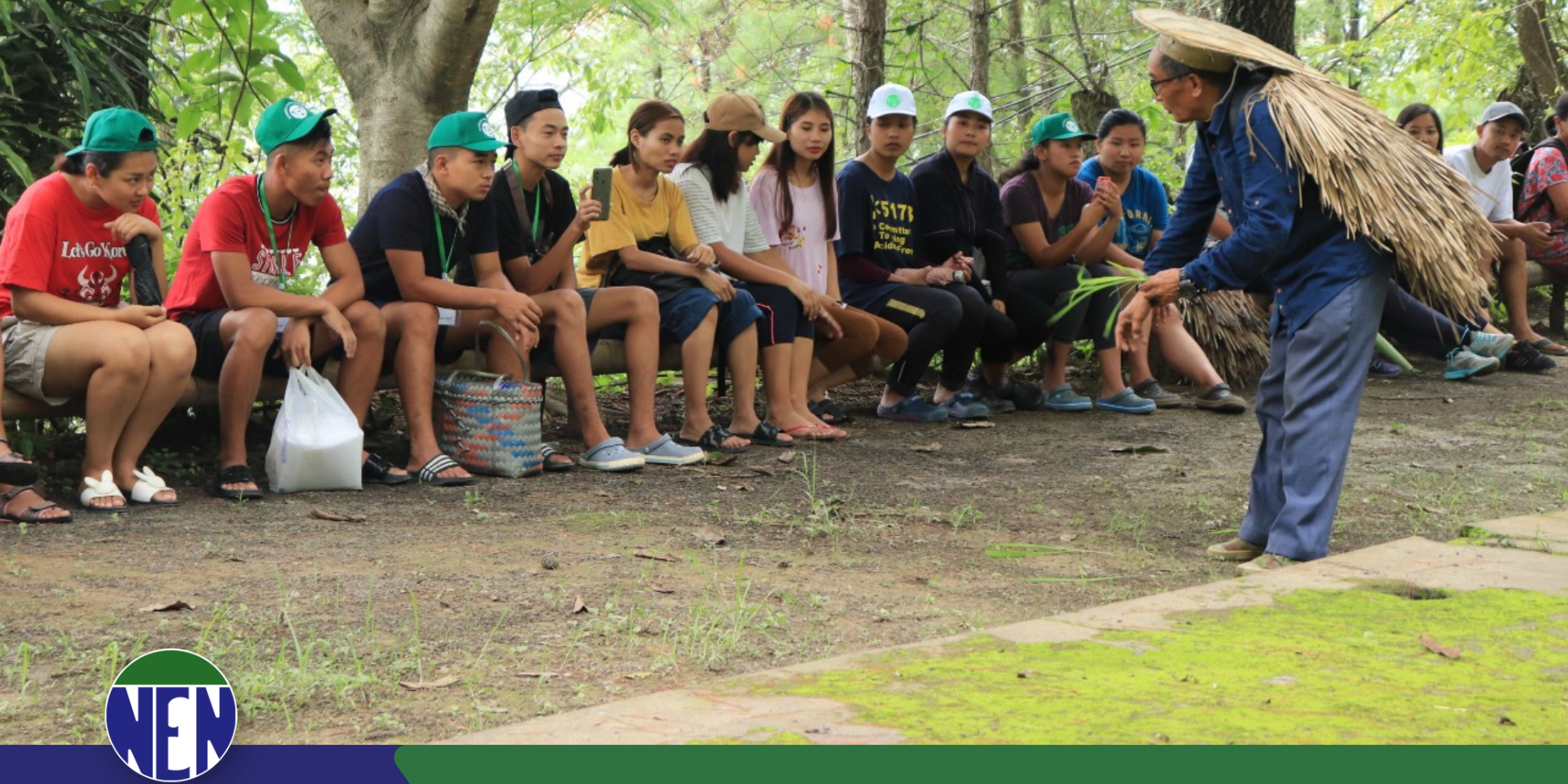The NEN Farm School, an initiative of North East Network concluded its 4th edition at Chizami in Phek District of Nagaland. Beginning in 2016, to address the growing issue of food insecurity, the NEN farm school presents traditional sustainable farming systems as an alternative to young participants from schools of adjoining districts of the state. This school saw the participation of 22 students, between 17 to 21 years of age from eight educational institutions of Kohima and Dimapur for a five days residential programme.

The NEN Farm School targets young urban-based students with the objective of reconnecting them to their local culture, sustainable and traditional farming systems. The 2019 NEN Farm School emphasised on understanding our natural world and reconnecting to our indigenous food system as an introductory session. The second day introduced the students to Soil Health Management and Ecological Farming which was facilitated by Dr Esther T. Longkumer, ACTO, Soil Science, KVK- ICAR and Community Knowledge Holder & Farmer Mr Zulhipe Chirhah respectively. A practical session on vermicompost was demonstrated followed by a practical session on paddy transplantation in the field to give an understanding of terrace fields which is an integral part of Naga- farming. On the third day, the participants took part in the local Sunday Church service and presented a special number, which was followed by a visit to the Community Seed Bank, an initiative of the Chizami Women Society and NEN. An interactive session with the Seed Custodians was followed by an introduction to the importance of traditional seed conservation and issues of seed sovereignty by NEN team. To understand the life of a village, the participants were given the experience of a Mapumo (Community Morung) where seven Community Knowledge Holders, Ms Tasetshulou Kapfo, Mr Wenyilo Naro and Ebamhetho-Kro shared folk songs and narrated stories on culture, food and seeds. With a view to understanding the traditional farming system a participatory rural appraisal on cropping patterns in a jhum field was conducted by community knowledge holders Ms Dikhwetsou Wezah and Ms Neipelhiu Edemi on the fourth day. A visit to the Jhum field, biodiversity walk and practical session on foraging wild edibles followed. The five days programme concluded with a cooking demonstration, highlighting the nutritional benefits of local foods, facilitated by the NEN team, and followed by a Valedictory programme.

At the valedictory session attended by community leaders, students and our team, Special Guest Mr Renbomo Ezung, SDO (Civil), Chizami, in his address highlighted that “in a time of chemical-based agriculture, there is a shortage of organic and healthy food. Thus, it has become critical for us to grow our own”. He challenged the students to take their learnings back with them and spreading awareness on the importance of growing and eating organic food, supporting organic farmers and even starting small kitchen gardens.

Sharing his experience of the NEN Farm School, Anguto Chophy from Patkai Christian College, who transplanted a paddy sapling for the first time in his life pointed that he has ‘found new respect for farmers who struggle to produce food’.
Seno Tsuhah, Director of NEN Nagaland in her closing comment encouraged the students to “become responsible consumers and to value and appreciate the contribution of farmers”

For those interested, the 5th Edition of the NEN farm School will commence in October this year.







